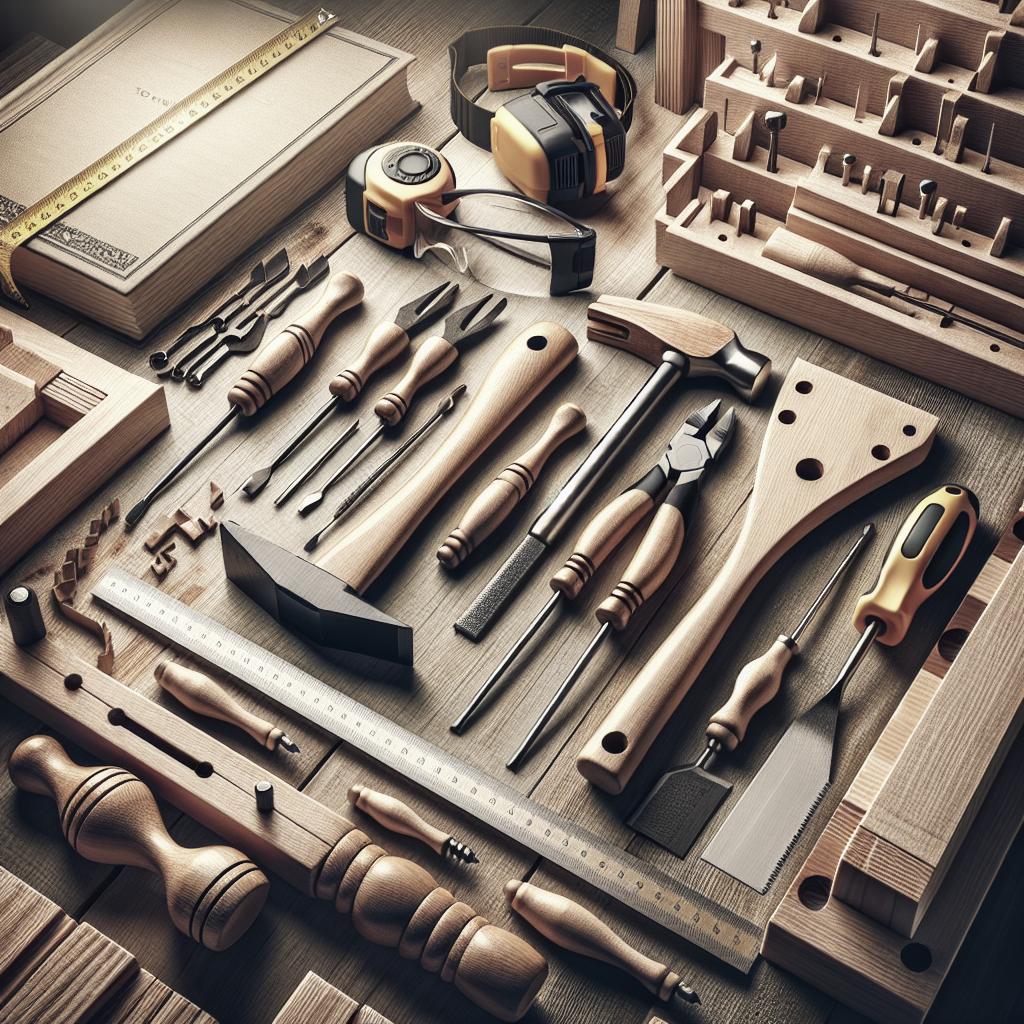“`html
The Best Tools for Beginners in Woodworking
Embarking on a woodworking journey can be both exciting and intimidating for beginners. With a sea of tools available, choosing the right ones is crucial to ensure success and satisfaction in crafting projects. This guide delves into the essential tools that can make woodworking more accessible and enjoyable for novices. We will discuss five primary tools: the circular saw, miter saw, drill, jigsaw, and random orbit sander. Each section provides insights into how these tools function, their benefits, and tips for selecting the ideal model for beginners. By the end, you’ll have a robust understanding of the indispensable woodworking tools and be ready to explore more advanced techniques.
1. Circular Saw
The circular saw is a staple in most woodworking toolkits due to its versatility and power. It is crucial for making straight, accurate cuts across various materials. For beginners, it’s advisable to start with a model that offers safety features such as a blade guard and an electric brake. These features help prevent accidents and make the tool easier to handle.
When choosing a circular saw, consider the blade size and motor power. A 7 1/4 inch blade is standard and can handle most home projects. Additionally, look for ergonomic designs with comfortable grips that reduce fatigue during extended use. Battery-powered options are great for portability, while corded saws offer consistent power for longer tasks.
2. Miter Saw
A miter saw is perfect for making precise angled cuts, such as those necessary for frames or molding. For beginners, a compound miter saw is a practical choice as it not only cuts at a range of angles but also performs bevel cuts. This versatility makes it a valuable addition to any novice woodworker’s arsenal.
When purchasing a miter saw, consider the blade size and adjustability. A 10-inch blade typically suffices for most projects. Models with laser guides or digital displays can enhance accuracy for beginners still learning to perfect their cutting techniques. A dependable miter saw stand can also enhance the stability and safety of your work.
3. Drill
In any woodworking shop, a drill is indispensable. Its primary function is to drill holes and drive screws, but it can double up as a power sander or buffer when equipped with the right attachments. For beginners, a cordless drill is a versatile choice, offering convenience and an easier learning curve.
Opt for a drill that offers a mix of speed settings and torque control, enabling beginners to work with a variety of materials. Lithium-ion batteries provide long-lasting power, making your projects more efficient. Additionally, a keyless chuck facilitates quick changes between drill bits, saving time and hassle during projects.
4. Jigsaw
The jigsaw is another versatile tool, ideal for cutting curves and intricate designs. Its compact size makes it easy to handle, and it’s an excellent choice for beginner woodworkers looking to explore more artistic projects. Plus, the jigsaw allows cutting in confined spaces where other saws can’t reach.
When selecting a jigsaw, pay attention to the power and speed settings. Variable speed options give users better control over the cutting process. Look for models with tool-free blade changes, which simplify the swapping of blades for different materials. It’s also worth investing in quality blades designed for various types of wood for the best results.
5. Random Orbit Sander
A random orbit sander is essential for smoothing surfaces and preparing them for finishes. This tool delivers a smooth finish without leaving swirl marks, which is critical for quality craftsmanship. Beginners will appreciate its user-friendly nature and the professional results it can help achieve.
Choose a model with a comfortable grip and adjustable speed settings for tasks that require finesse. Dust collection systems are a valuable feature for maintaining a clean workspace and ensuring good visibility while sanding. A well-chosen random orbit sander can elevate any project with smooth, precise finishing touches.
Recommended Reading
To further enhance your woodworking skills, consider reading guides or watching tutorials specific to each tool. Resources from trusted woodworking experts or communities offer valuable insights and tips to refine your techniques. Reading reviews and comparisons can also help you make informed purchasing decisions and discover new tricks of the trade.
Lessons Learned
| Tool | Beginners’ Tips | Key Features |
|---|---|---|
| Circular Saw | Prioritize safety features and ergonomic designs. | Blade guard, electric brake, 7 1/4 inch blade. |
| Miter Saw | Start with a compound miter saw for versatility. | Bevel cuts, laser guides, 10-inch blade. |
| Drill | Opt for cordless models with variable speed. | Speed settings, torque control, lithium-ion batteries. |
| Jigsaw | Focus on power and blade compatibility. | Variable speed, tool-free blade changes. |
| Random Orbit Sander | Look for adjustable speed and dust collection. | Comfortable grip, smooth finish, dust systems. |
“`


